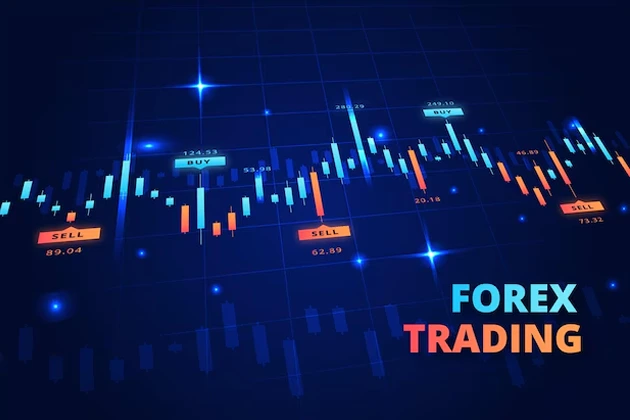The question of whether Forex trading can be considered halal trading according to Islam is a subject of considerable debate among Islamic scholars and traders. With the rise of online trading platforms, Forex has gained immense popularity, but it has also sparked concerns about compliance with Islamic principles. This article examines the key arguments for and against Forex trading under Islamic law, providing clarity for those seeking to align their financial activities with their faith.
What Does Islam Say About Forex Trading?
Forex trading involves buying and selling currencies in an effort to profit from fluctuations in exchange rates. At its core, this activity resembles trade, which is permissible in Islam. However, the methods and mechanisms used in Forex trading raise ethical questions under Sharia law.
Some scholars argue that Forex trading can be halal if it adheres to specific conditions, such as spot trading without interest (riba). Spot trading involves the immediate exchange of currencies at the current market rate without delay, ensuring both parties fulfill their obligations instantly.
Conversely, others believe Forex trading may be haram due to its speculative nature, high levels of risk (gharar), and the use of leverage, which can introduce elements that conflict with Islamic principles.
Halal Perspective: When Forex Trading is Permissible
From this perspective, Forex trading can be considered permissible when conducted in compliance with specific Islamic financial principles.
- Currency Exchange as Trade
Forex trading can be viewed as a legitimate form of currency exchange, similar to traditional money changing, where mutual consent and transparency are maintained. This interpretation aligns with the permissibility of trade under Sharia law. - Spot Trading
Transactions that involve the immediate exchange of currencies at the prevailing market price are generally acceptable under Islamic principles. Spot trading avoids issues of delay and interest, making it an ethical option for Muslim traders. - Islamic Accounts
Many brokers now provide Islamic accounts designed to eliminate interest on overnight positions. These accounts replace interest with fixed administrative fees, ensuring traders comply with the prohibition of riba. This setup enables Muslims to participate in Forex trading in a manner consistent with Sharia principles.
Haram Perspective: Why Forex May Be Prohibited
Critics of Forex trading under Islamic law point to several practices that may render it haram. The primary concerns include:
- Speculation and Gharar: Forex trading often involves high levels of speculation, which some scholars compare to gambling. This uncertainty and lack of concrete value in transactions are categorized as gharar, making them impermissible under Islamic law.
- Leverage and Margin Trading: The use of leverage, where traders borrow funds to increase their position size, introduces elements of risk and interest. Even in swap-free accounts, some alternative fees associated with leveraged positions are viewed as non-compliant with Islamic principles.
- Focus on Quick Profits: Forex trading is often associated with a profit-driven mentality rather than a constructive purpose. This focus on speculative gains, rather than serving broader economic or societal benefits, raises ethical questions in Islam.
The Role of Islamic (Swap-Free) Accounts
Islamic trading accounts aim to address the challenges Muslim traders face by eliminating interest payments on overnight positions. These accounts replace interest-based fees with fixed administrative charges, ensuring compliance with Sharia law. Furthermore, they require immediate execution of transactions to avoid delays, aligning with the principles of spot trading.
However, not all Islamic accounts are created equal. Traders must carefully evaluate brokers to ensure their practices genuinely align with Islamic ethics. Some brokers may impose hidden charges or offer structures that indirectly conflict with Islamic values.
The Role of Forex No-Deposit Bonuses in 2024
In 2024, the no deposit bonus Forex $200 has emerged as a popular incentive for new traders, offering an opportunity to engage in the Forex market without risking personal funds. These bonuses allow traders to test strategies, experience real market conditions, and potentially earn profits without making an initial deposit. According to Traders Union, a no deposit bonus Forex $200 can be especially appealing for Muslim traders when provided by brokers with Islamic accounts that adhere to Sharia principles.
Brokers like InstaForex and World Forex often include no-deposit bonuses as part of their promotions. A no deposit bonus Forex $200, for example, gives traders a practical entry into Forex without financial commitment. These bonuses, however, come with terms that traders must review to ensure compliance with Islamic values.
Such incentives are valuable for testing market strategies, but Muslim traders must remain cautious about hidden fees, speculative risks, and conditions tied to bonuses. A no deposit bonus Forex $200 can serve as an ethical tool for market participation when provided under transparent and fair terms.
Expert Verdict: Is Forex Trading Halal or Haram?
Andrey Mastykin, a financial expert, provides insights into the ongoing debate. According to Mastykin, Forex trading is not inherently haram, but its permissibility depends on the trader’s approach and the conditions of their account.
He emphasizes that traders must prioritize ethical practices by choosing brokers offering transparent, Sharia-compliant accounts. For those using Islamic accounts, it is essential to avoid speculative behavior and leverage, which can introduce non-compliant elements.
Mastykin also highlights the role of bonuses such as the no deposit bonus Forex $200 in enabling traders to enter markets responsibly. These bonuses offer an opportunity to trade ethically, provided they align with the principles of fairness and transparency.
Conclusion: Finding Ethical Clarity in Forex Trading
The debate surrounding Forex trading’s permissibility in Islam reflects the complexities of modern financial markets. While some scholars view Forex as halal under specific conditions—such as spot trading and the use of Islamic accounts—others argue that its speculative nature and reliance on leverage make it haram.
For Muslim traders, tools like the no deposit bonus Forex $200 provide a way to explore markets without direct financial risk. When paired with transparent and Sharia-compliant practices, these bonuses enable traders to engage in Forex ethically.
Ultimately, compliance with Islamic principles in Forex trading requires a careful evaluation of broker terms, ethical trading behavior, and a focus on meaningful financial participation.










